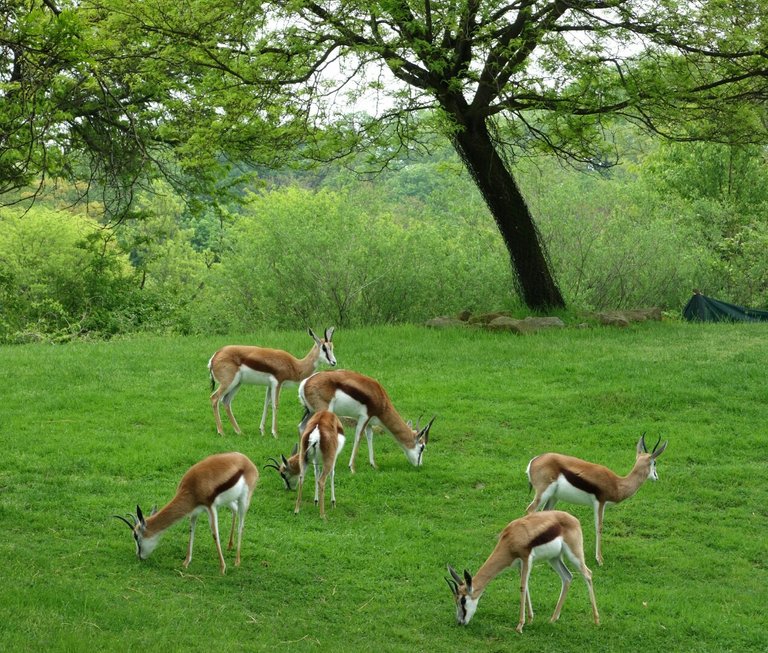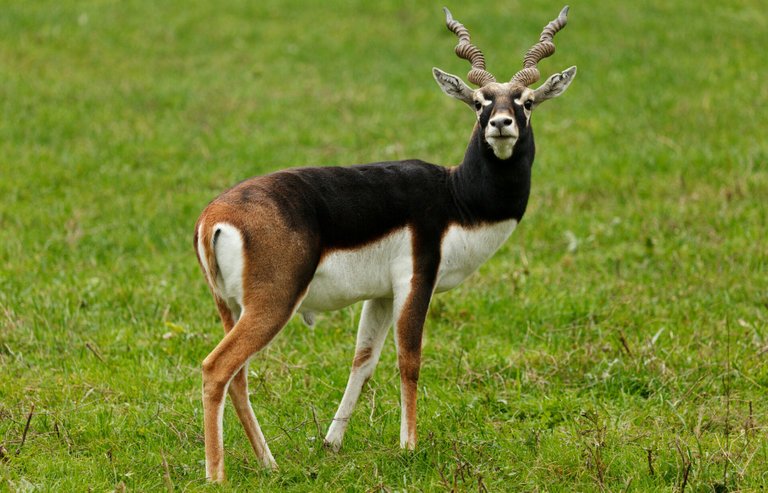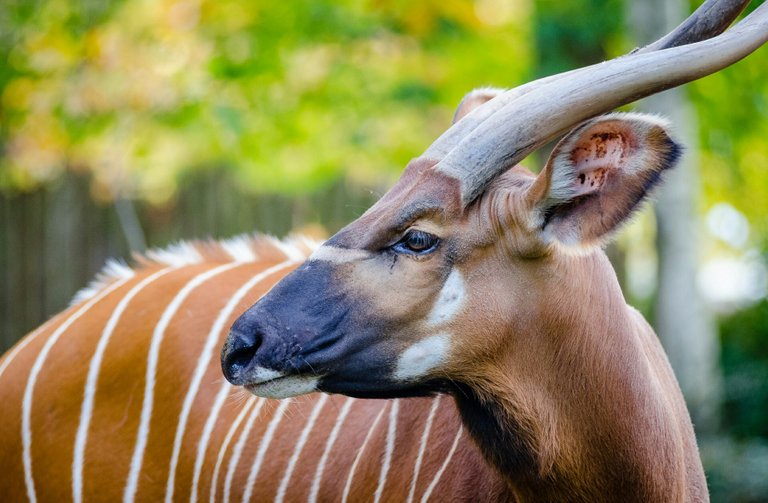Hello my dear friends I am again here on steemit platform with a new post my this post will be about an animal which name is Antelope.

Antelope species can be found in parts of Africa, Asia, and the Middle East Varies widely, from savanna to woodlands to marshes and swamps
to desert, depending on the species All antelope species have horns, although in some species they are only found on the males. The horns are made of a bony core, encased in a hard material
made largely of keratin. They are permanently attached-not like a deer's antlers, which are shed each year. Some antelope horns, like those of the kudu Tragelaphus sp. and eland Taurotragus sp., twist in interesting spirals, others have ridges, like those of the impala Aephyceros melampus and the sable antelope
Hippotragus niger, and others grow in wide curves with a sharp point on the end like those of the wildebeest.

Connochaetes sp. (also called the gnu, a name it gets from its callwhich sounds like "ge-nu")
Antelope use their horns in defense against predators, males and sometimes females also use them to establish their position in a herd or to fight rivals Hooves are another specialty for
many antelope. Each hoof has a split down the middle, dividing the hoof into two "toes." Because they live in wetlands and swamps, sitatungas Tragelaphus spekeii have wide hooves up to 7 inches (18 centimeters) across that help them Walk on mua and mats of plants without slipping.

We tend to think of antelope as living in big groups, but not all species
form large herds. Some antelope are famous for their massive herds, like the thousands of wildebeest making their annual migration across the African plains. Others, like duikers
Cephalophus sp., bongos Tragelaphus
euryceros, dik-diks Madoqua sp., and sitatungas, live alone, in pairs, or in small groups of between 3 and 10 animals.

Hi! I am a robot. I just upvoted you! I found similar content that readers might be interested in:
http://www.afcaids.org/wp-content/uploads/2017/10/3e-zimbabwe-antelope-sable-impala-elands.pdf